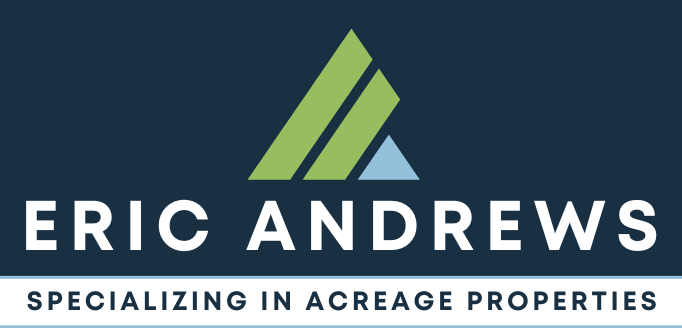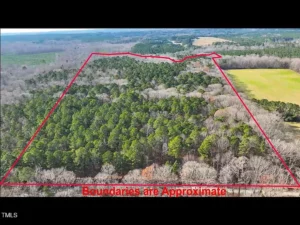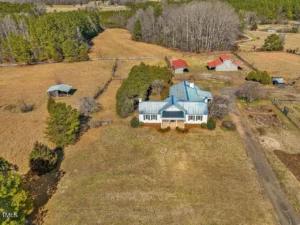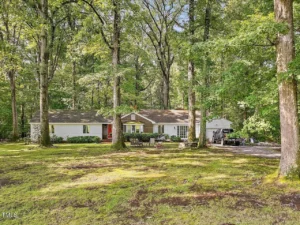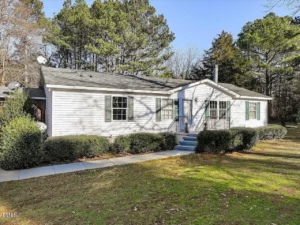Accredited Land Consultant Eric Andrews tells us today about TEN things you need to know when purchasing land in the State of North Carolina.
Speaker 1: What are 10 things to know before buying land in North Carolina?
Speaker 2: 10 of them, 10 of them now, are you going to count? Are you going to keep track?
Speaker 1: Yeah.
Speaker 2: We need to know the intended use of the buyer. Is it going to be a farm, a house, a business, hunting investment, timber? We need to figure out what your needs are. Not every property can you do on it what you want to do, so we need to figure out what your intended use. We need to figure out what amenities does it have? Does it have a pond? Does it have a fence? Does it have a stream? Does it already have a septic on it? Right now, pasture’s an amenity. Everybody wants pastures, so that’s actually considered an amenity.
So what amenities are actually on the property? Topo. Topo’s real, real important. We’ve had properties in Chatham County and in North Carolina that are so steep, you can’t put a septic on them. They’re so steep that they won’t hold a septic. And commercial properties, this is hugely important. In commercial, what do we want? We want level. And if you have a very hilly property or some kind of hole or whatever, moving dirt can be as expensive as the property itself.
We’ve had properties where the property was $300,000, and to get it site-ready cost another $300,000. So topo is real, real important. Size. Size matters. You can’t have a cattle farm on a five acre piece of property. So we need to know what size property you need. And then one of our hottest topics on YouTube, easements. Does it have a public road? That’s one kind of easement, but believe it or not, there’s other kinds too. Utility easements. I sold a property last week that had a gas line going through it.
You’re not moving that gas line. That gas line’s going to be there for a long, long time. Sometimes we have septic easements, where someone else’s septic is on your property. You can’t build your house on top of your neighbor’s septic. So septic easements. We have train tracks. Literally train tracks that go along the edge of your property. Even though the train tracks are on your property, you’re not allowed to cross those train tracks without special permission. So you’d think if the easement went across, you’d be able to cross, but you have…
It’s very hard to get those letters to cross train tracks. And then it’s real cute see, especially in Orange County, we do a little bit of it in Chatham county, but you can voluntarily give up your developmental rights on your property, then it’s covered with a conservation easement. And so that limits what you can do if it’s under a… So you have to be aware of the easements. Number six would be value comparison that this is… Versus the intended use. So if you have a piece of property that’s on the highway that’s great for commercial, you wanting to put your 600 square foot tiny house on that property is a value.
So that property might be two acres and they might be asking a million dollars for it. Well, that’s not great for a tiny house by any means, right? So you have to look at what intended use is versus the value comparison of the property. Utilities are real important. Does it have sewer? Does it have water? What’s the other big one right now? Broadband. Broadband’s huge. Natural gas. All properties in Chatham County and most of North Carolina have access to power, but we’ve had clients that had to pay $64,000 to bring power to their property because the property was there on the road, but they were way, way back, and that’s how much Duke Power is going to charge them.
I think it’s important to know your tax exemptions. Is it in timber use? Is it in farm use? You need to know the deed restrictions. Can you do everything that you want on this property, or is it restricted on the deed? And the last one is, what are the local restrictions? There’s stream buffers, so if you have different kinds of streams, there’s setbacks, what you can and can’t do. Every now and then, very rare, but we get into some endangered species situations.
They’re zoning and every now and then, we’ll have a piece of property, especially older farms or whatever, where they just dump their trash on their property. After you buy that, somebody might come along and say, “You have to pick up that trash,” and you say, “Well, I didn’t put it there. It was here when I bought it,” but you need to be aware of those. So those are the top 10 things right now that I think people should be aware of when buying land in North Carolina.
